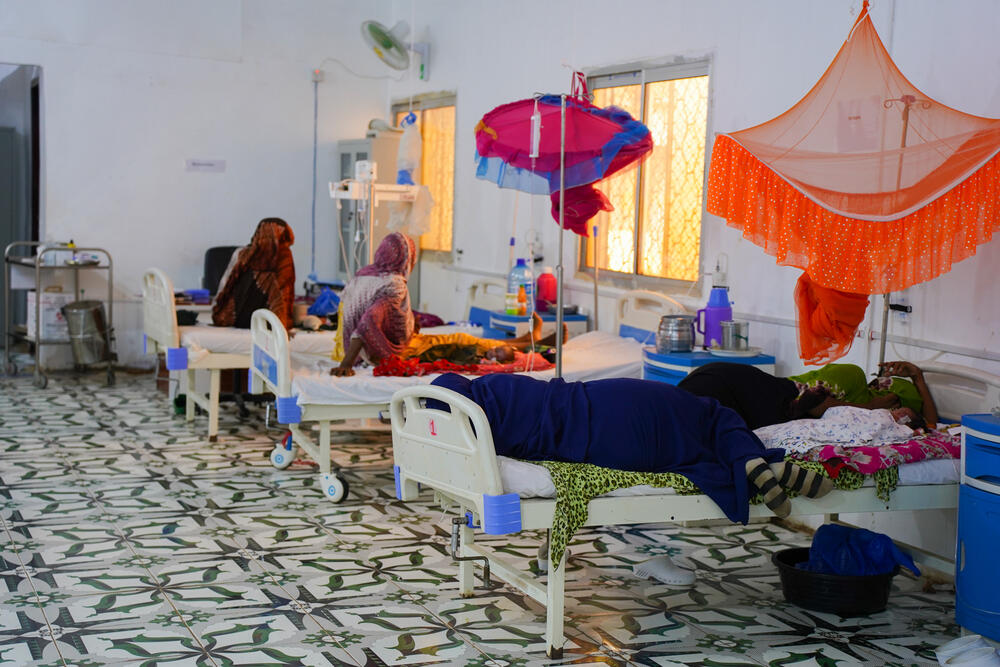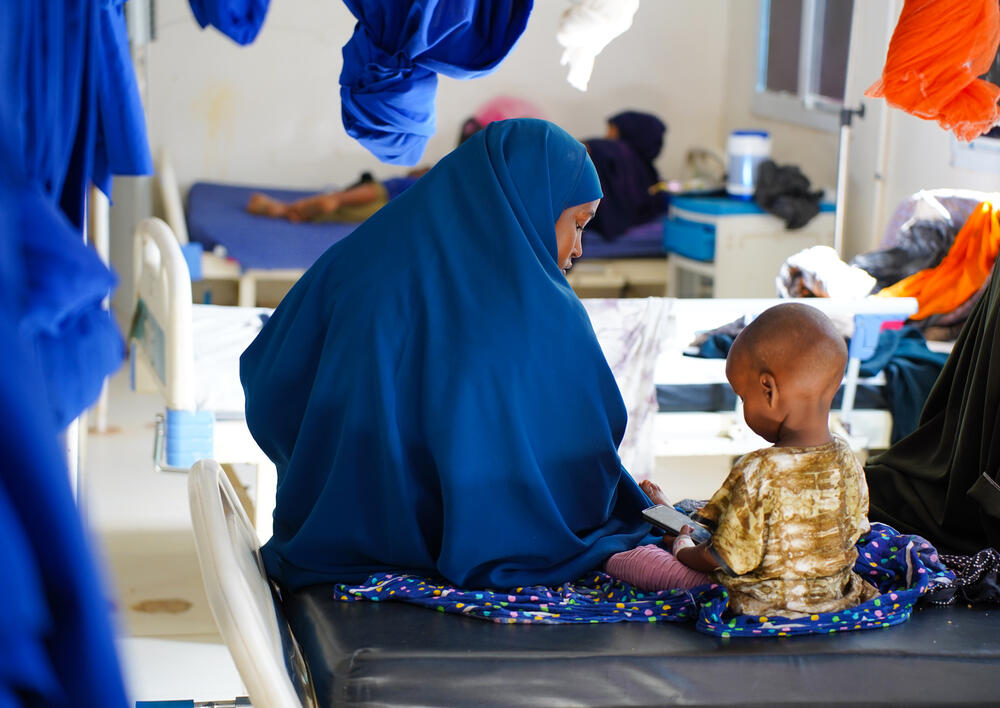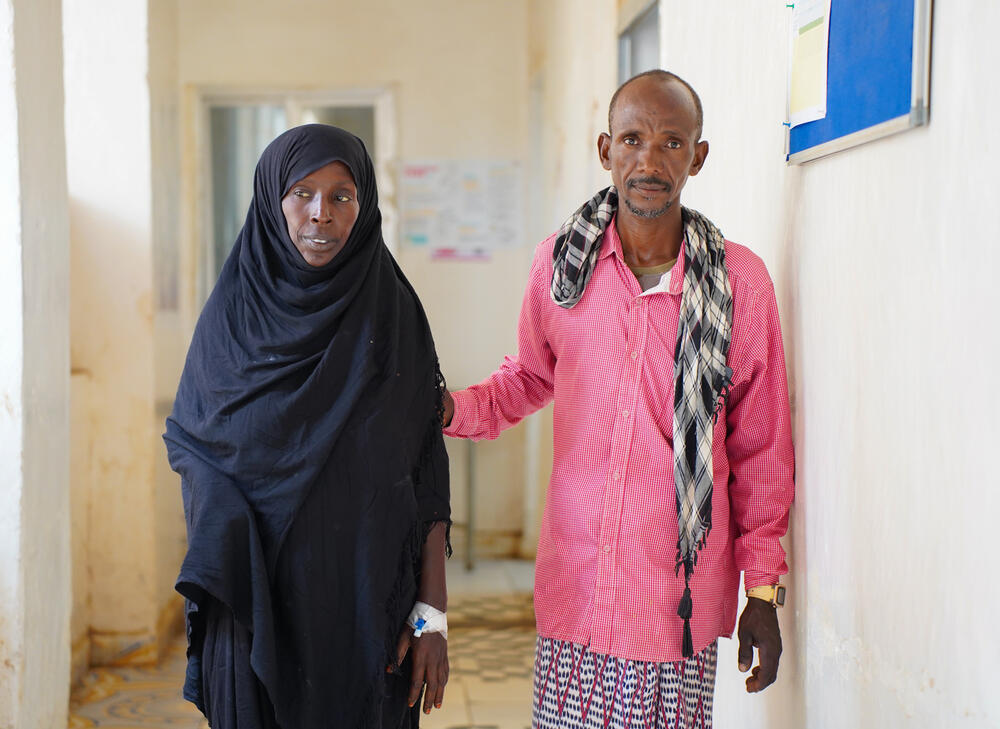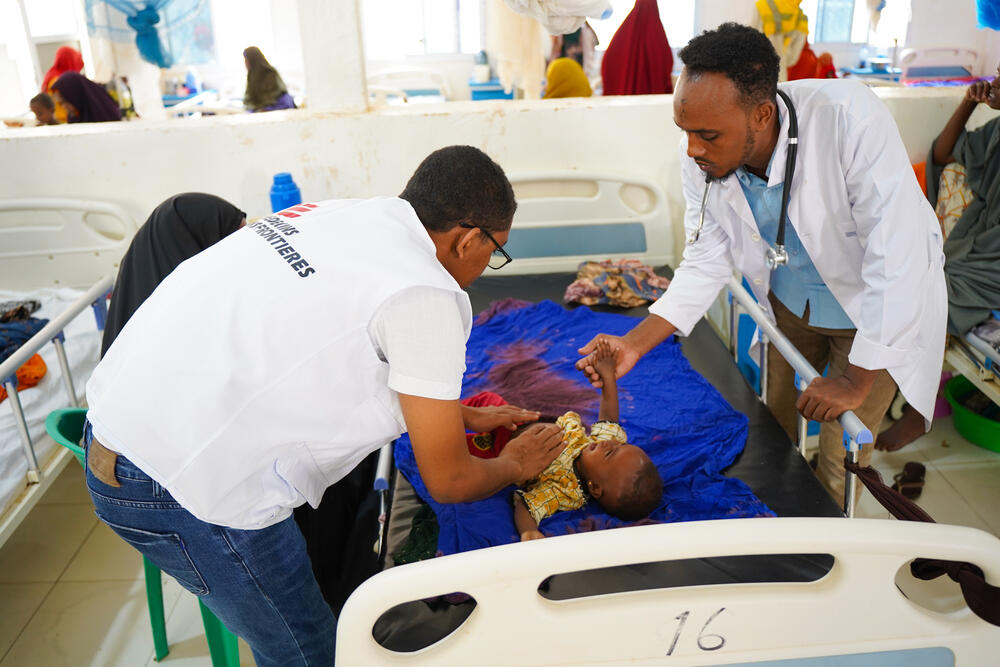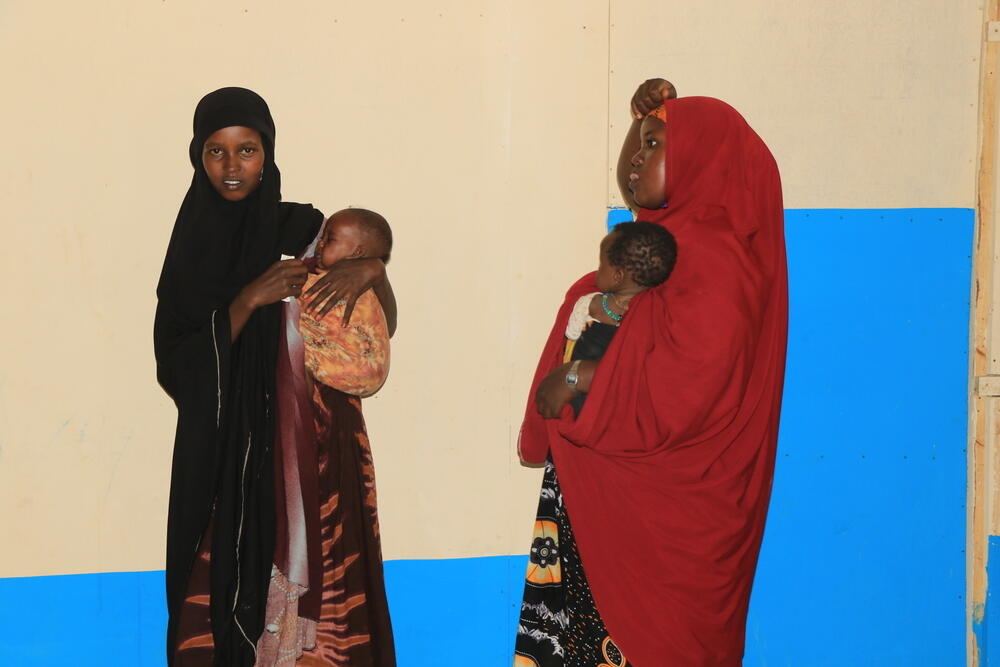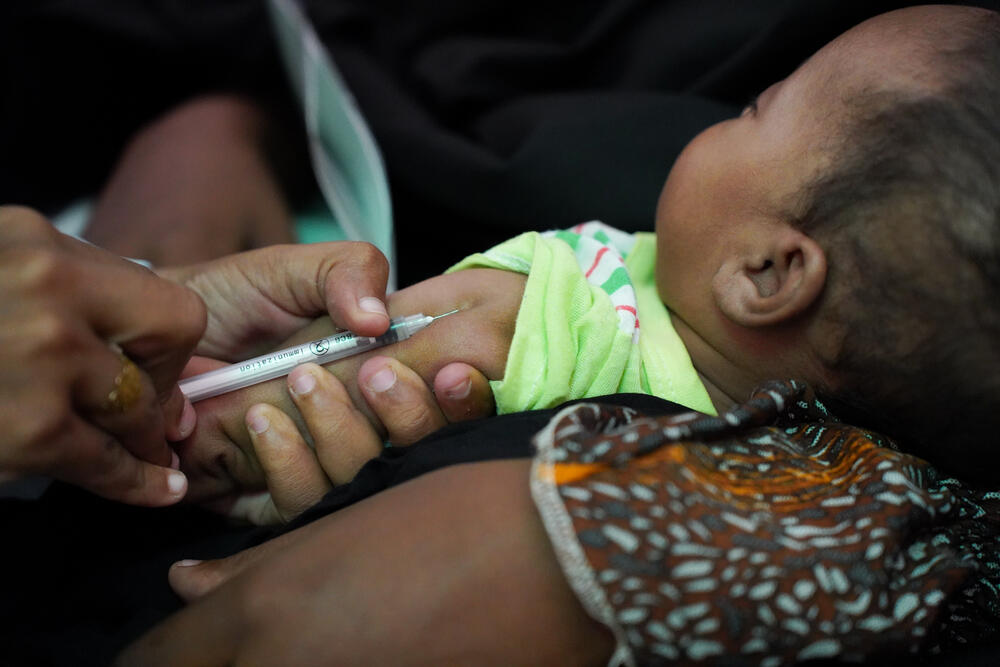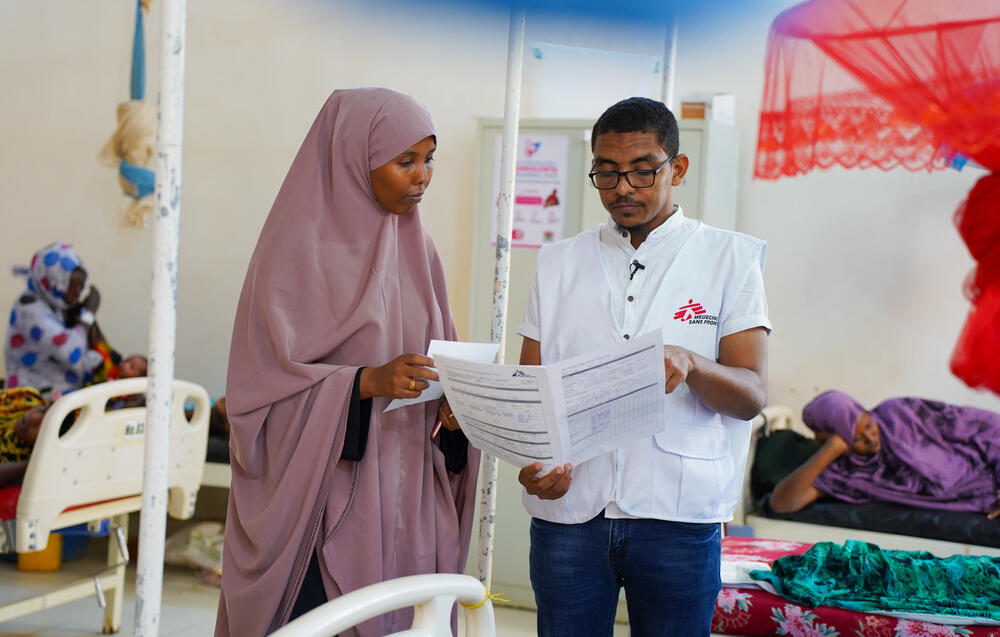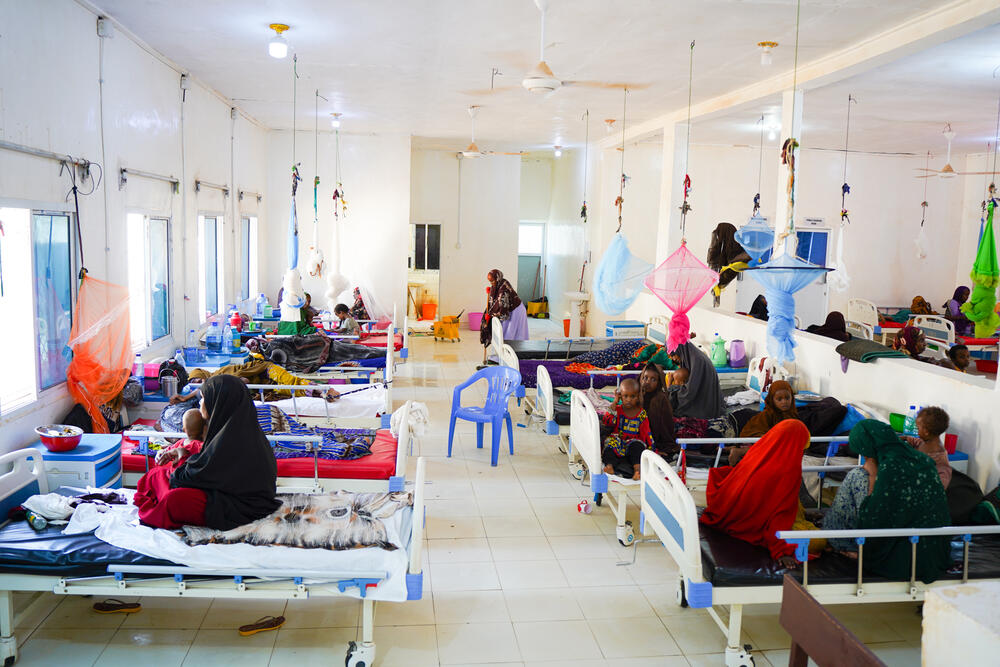Silent Suffering in Somalia: Healthcare Access Challenges in Baidoa for Women and Children
13 August 2024
“Seven months ago, my wife gave birth to twin boys. She experienced excessive bleeding during delivery, but I had no money to take her to the hospital. Our village lacks a free health facility. While caring for her at home, our two boys also fell ill. I had to take a loan of about $130 USD and travelled 300 kilometres from my village to Baidoa to seek free care,” says Kalimow Mohamed Nur, a father whose twins are under treatment at the Bay Regional hospital supported by Médecins Sans Frontières (MSF) in Baidoa.
Kalimow's wife survived the bleeding and after seven months, he managed to bring his sons for treatment, but there are hundreds of women and children, who still cannot seek medical care in Southwest state of Somalia. The persistent conflict in the region means a precarious situation for anyone in need of critical healthcare.
Women and children have to undertake arduous journeys of hundreds of kilometres to reach medical facilities for healthcare, but pervasive insecurity along the way frequently obstructs their access, leading to critical delays that exacerbate health conditions and tragically, sometimes even death. Those who are able to afford it navigate the risks of getting caught in violence and pay large amount of money for transport to reach the few fully functioning health facilities.
Beliefs, Practices, Socio-Economic and Security Barriers to Accessing Medical Care
A significant portion of people in the Bay and surrounding region lives in poverty, which makes it difficult for them to afford healthcare services and transportation to reach secondary healthcare services. The cost of transportation that can be up to $300 USD for some alone can be prohibitive, forcing many to delay or forgo essential medical care, including many women in their reproductive age, leading to high rates of illness and death from preventable diseases.
People in the region have been facing significant health and humanitarian challenges due to prolonged conflict, chronic instability, and climatic shocks leading to severe droughts and flash floods. The crumbled healthcare system further exacerbates the situation, leaving women and children most vulnerable to bear the brunt and depriving them of basic health services.
Cultural norms and traditional practices play a substantial role in healthcare access. In many families, men make the healthcare decisions, their consent is crucial to carry out any medical procedure and women often lack autonomy over their own health. This delay in decision-making can lead to late arrivals at medical facilities. Additionally, a general mistrust of modern medical practices coupled with health awareness rates hinder the adoption of preventive and curative healthcare measures.
“There has been a widespread belief that undergoing surgery would result in their children being exchanged with others, leading many to refuse hospital treatment. Moreover, common misconceptions about blood donation include fears about health risks associated with donating blood, concerns about religious or cultural taboos, and misunderstandings about the medical process,” says Habiba Mohamed Abdirahman, a traditional birth attendant in Baidoa.
The main causes of death for pregnant women are blood-pressure-related complications, hemorrhage, and sepsis. All these conditions can become deadly if not treated in a timely manner and late access to healthcare increase the chances of death for them and their babies.
Maternal and Child Health Crisis and Struggling Health Care: A Growing Concern
Most maternal and paediatric deaths stem from delays in seeking care: delay in deciding to seek safe delivery services, delay in reaching a health facility, and delay in receiving prompt and suitable care upon arrival at the facility. Women in Bay and surrounding regions experience these challenges, contributing to the maternal and child mortality rates. Somalia has one of the highest maternal mortality rates globally, with 621 deaths per 100,000 live births, and one of the highest child (under-five years) mortality rates, with approximately 106 deaths per 1,000 live births.
The healthcare infrastructure in the region is underdeveloped and suffers from a critical shortage of trained medical professionals. The few facilities that exist in Baidoa and at the periphery are often overwhelmed, particularly during emergencies and disease outbreaks. The region's healthcare system struggles with limited resources, including human and financial resources, essential medications and medical supplies. Ongoing conflict further complicates the delivery of healthcare as it remains out of reach for the majority of people in conflict-affected and inaccessible areas.
Call for Immediate Action: Increase Investment in Healthcare Infrastructure in Bay Region
“The current state of maternal and child health in the Bay region calls for immediate attention. MSF calls upon national authorities and international organizations to invest more in strengthening the health system, both at primary and secondary levels, by allocating enough resources to improve access to healthcare for women and children in Bay region,” says MSF’s head of program in Somalia, Dr.Pitchou K.
“Maternal and neonatal deaths can be averted by making it possible for pregnant women to access antenatal care closer to their homes, reducing late referrals for complicated cases and increasing the number of women delivering in a health facility by raising awareness about available services."
"Vaccination coverage and nutrition screening & support must be expanded. This is only possible through increased financial support, community engagement, and improved cold chain infrastructure.”
Since 2018, MSF has been supporting the Bay Regional Hospital in Baidoa, providing a range of medical services to improve maternal and child health and respond to disease outbreaks. MSF provides comprehensive emergency obstetric and neonatal care, ensuring safe births and offering both inpatient and outpatient care for pregnant women and their newborns. The teams assist approximately 200 deliveries each month. Additionally, MSF runs seven outreach sites near camps for people who are internally displaced, to provide primary healthcare and ensure timely referrals to secondary healthcare services.
The challenges in accessing healthcare for women and children in Baidoa are multifaceted, involving security, economics, culture, as well as infrastructural barriers. While the efforts of MSF and some organizations have significantly improved healthcare access and outcomes, continuous support and enhancement of these programs are essential. Strengthening the healthcare system, increasing health literacy, and addressing socio-economic barriers can pave the way for better health outcomes for the women and children of Baidoa. The continued support of the international community is essential to sustain, expand and decentralize health services.
“Four of them have passed away. When people get sick, all they need is emergency care,” says Faduma – a mother living in Bay region.
